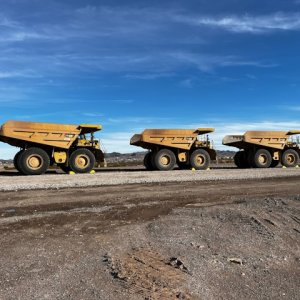Polyethylene to Increase Safety, Efficiency

STORY INLINE POST
Q: What is the added value you offer to operators and why should they choose KRAH over its competitors?
A: As a Mexican manufacturer that uses German technology, we saw the opportunity to offer an added value through our products, differentiated by their quality. The technology allows modification of the profile wall of the pipes. This improves mechanical resistance to flattening. One problem that tailings dams have is that the pipes sink deeper over time until they can no longer withstand the weight of the soil on top and collapse. For this reason, we designed a wall that is much more resistant that the normal pipe. Almost 100 percent of the products on the market do not allow the pressure to be modified outside the pipe, but KRAH’s technology permits operators to do this. Our added value is the variable profile wall that can be adapted to the parameters of the project.
Q: How do your products help operators to increase productivity and lower costs?
A: The pipes that exist on the market have a limited diameter. In the national market, this is normally 36 inches and when importing from the US this can go up to 60 inches. Many miners require the construction of parallel infrastructure to that which already exists. KRAH can provide pipes with a diameter of up to 120 inches, which allows the operator to channel a higher volume of liquids, using less energy and lowering costs.
We also help prevent environmental damage, given our pipes need to withstand toxic substances from leaching pits. Polyethylene pipes are the safest option for mining because the material has high resistance to strong acids. It is corroded neither by the waste fluids nor by the ground soil. In general, it is a material adopted by the industry as a replacement for metal piping, and all around the world it is replacing this outdated piping system due to its high reliability and safety levels.
Q: How does Mexico compare to Chile as a mining jurisdiction?
A: Mining infrastructure plays a great role in the attractiveness of a country to operators. Of course, mineralization obviously is the No. 1 requirement but copper mineralization in Chile, for example, is more or less on par with that in Mexico, but the industry in Chile is much more developed. This can be attributed to a focus on installing the relevant infrastructure and implementation of regulations that may make mining easier in one jurisdiction over another. If the private sector wants efficient, effective infrastructure, it should not leave the responsibility in the hands of the government. It is also the private sector that benefits from mining projects, so it should balance this by contributing infrastructure and connectivity to the communities in which it is working.
Q: In a cyclical industry like mining, how do you mitigate the risk of low metals prices?
A: Because of the level of diversification we have in our portfolio in terms of industries, cyclicality within the mining industry affects us very little. What really affects us is government spending on infrastructure, which depends more on politics rather than metals prices. As a service provider to the mining industry, the cost of raw materials, such as virgin resins, affects us much more than those of metals.
Q: How resistant is the Mexican industry to new technologies?
A: The private sector is very quick to adopt new technologies. It is the government that is resistant and takes time to warm up to new ideas. Generally, the private sector is more easily able to see the long-term value and benefit of a product like ours. The industry is strong and has the potential for steady growth in the coming few years. We want to continue gaining a foothold in mining and bringing our portfolio of products from Germany to solve problems for operators. We would like to keep our market share in infrastructure and grow within the mining industry.























